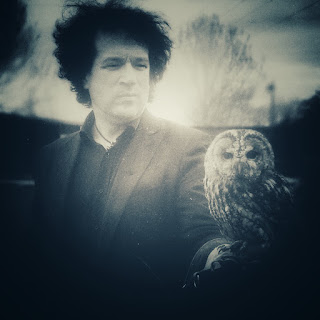"I notice that autumn is more a season of the soul than nature ..."
Ever since childhood, autumn has been my favourite season: a time of conkers and bonfires; pumpkins and toffee apples; giant spiders and daddy longlegs ... What's not to love? I even like the first sharp frosts and shortening of the days.
I've certainly never found anything painful or depressing about this season of mists and mellow fruitfulness and poets who do, I would suggest, merely reveal their own melancholic dispositions [1].
Still, not to worry; who needs sad and sickly poets when there are philosophers capable of writing lines like these which beautifully capture the joy of this time of year:
"Autumn - not deterioration and dying, not the over and done - quite to the contrary, the fiery, glowing entrance into the certain silence of a new time of waking to the unfolding - the acquisition of the restraint of the established jubilation of the inexhaustibe greatness of being [Sein] at its bursting forth." [2]
Notes
[1] To his credit, although there are traces of sadness and regret in
Keats's famous ode that I quote from here, he primarily affirms the fact that autumn is a season of great beauty and abundance. To Autumn (1819) can be read on the Poetry Foundation website: click here.
[2] Martin Heidegger, 'Intimations x Ponderings (II) and Directives', (95), in Ponderings II-VI: Black Notebooks 1931-1938, trans. Richard Rojcewicz, (Indiana University Press, 2016), p. 26.
One might argue that this short piece demonstrates that philosophy is poetic in a way that poetry never can be (in much the same manner that it's scientific in a way that no science can be).
Bonus: to read a fascinating web feature entitled Nietzsche: The Problem of Autumn, by David Farrell Krell and Donald L. Bates, (University of Chicago Press, 1997), please click here.










